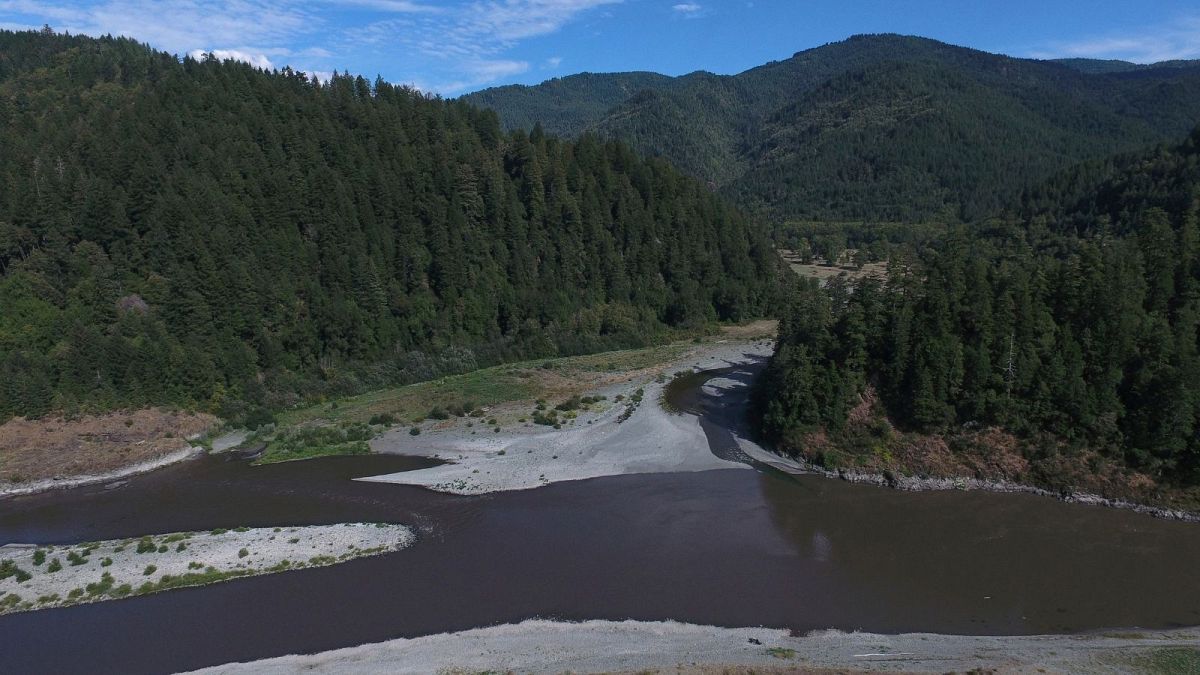By Abby Chitty with AP
Published on
The Yurok Tribe has regained nearly 189 square kilometres of ancestral forestland along the Klamath River in northern California, more than doubling their land holdings and marking the largest land-back conservation deal in state history.
The tribe plans to restore the landscape through traditional stewardship methods such as controlled burns, prairie restoration, invasive species removal and tree planting, efforts that will also create jobs for the tribe’s 5,000 members.
“We’re thrilled to announce that we’ve transferred the final phase of land to the Yurok tribe and completed creation of the Blue Creek Salmon Sanctuary and the Yurok tribal community forest,” said Josh Kling, conservation director at Western Rivers Conservancy.
He added, “This is the single largest land-back project of lands going back to a tribe in the entire state of California. 47,000 acres is now under the ownership and stewardship of the Yurok tribe.”
The return of these lands is part of the broader Land Back movement, which seeks to restore Indigenous ownership and stewardship of traditional territories.
Over the past decade, around 12,000 square kilometres of land has been returned to tribes across 15 states through federal programmes aided by conservation organisations.
For the Yurok, 90% of whose territory was seized during the Gold Rush era, reclaiming this land holds deep significance.
“Re-acquiring landscapes like this allows us to heal, to work towards healing a wound that was inflicted not only on the lands but our hearts when these lands were taken away from us,” said Tiana Williams-Clausen, director of the Yurok Tribe’s wildlife department.
She emphasised Blue Creek’s importance, calling it “one of the best and clearest and healthiest of tributaries that go into the Klamath River, which is the heart of Yurok Country,” but noted it has faced destructive management for years.
Studies increasingly show that forests stewarded by Indigenous peoples are healthier, more biodiverse and more resilient, highlighting the critical role of traditional ecological knowledge in combating climate change.
Beth Rose Middleton Manning, a Native American Studies professor at UC Davis, said “Indigenous people’s perspective – living in relation with the lands, waterways and wildlife – is becoming widely recognised and is a stark contrast to Western views.”
Despite this landmark land-back project, however, Yurok Tribe members know it’s going to take decades of work for these lands and waterways to heal.

